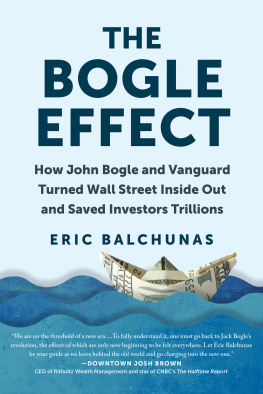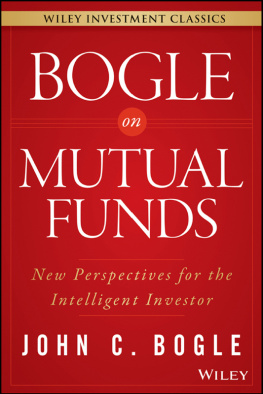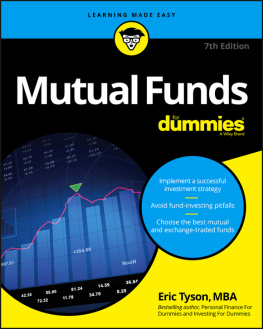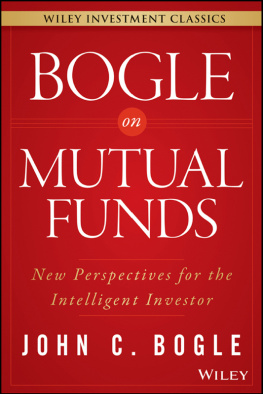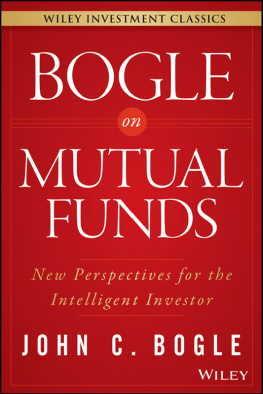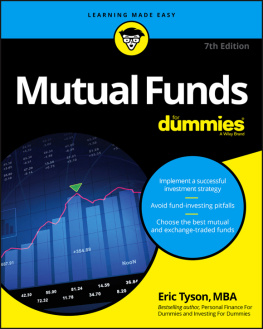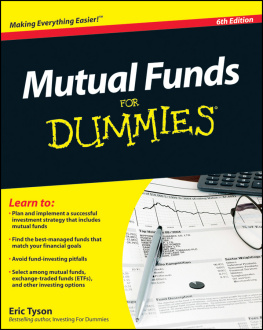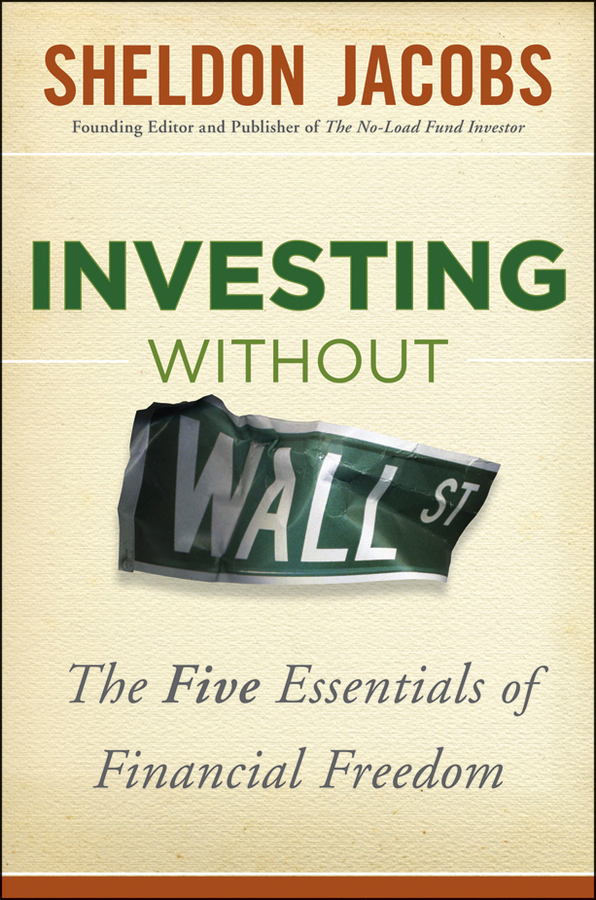Contents
A wise man should have money in his head, but not in his heart.
Jonathan Swift

Copyright 2012 by Sheldon Jacobs. All rights reserved.
Published by John Wiley & Sons, Inc., Hoboken, New Jersey.
Published simultaneously in Canada.
No part of this publication may be reproduced, stored in a retrieval system, or transmitted in any form or by any means, electronic, mechanical, photocopying, recording, scanning, or otherwise, except as permitted under Section 107 or 108 of the 1976 United States Copyright Act, without either the prior written permission of the Publisher, or authorization through payment of the appropriate per-copy fee to the Copyright Clearance Center, Inc., 222 Rosewood Drive, Danvers, MA 01923, (978) 7508400, fax (978) 6468600, or on the Web at www.copyright.com . Requests to the Publisher for permission should be addressed to the Permissions Department, John Wiley & Sons, Inc., 111 River Street, Hoboken, NJ 07030, (201) 7486011, fax (201) 7486008, or online at www.wiley.com/go/permissions .
Limit of Liability/Disclaimer of Warranty: While the publisher and author have used their best efforts in preparing this book, they make no representations or warranties with respect to the accuracy or completeness of the contents of this book and specifically disclaim any implied warranties of merchantability or fitness for a particular purpose. No warranty may be created or extended by sales representatives or written sales materials. The advice and strategies contained herein may not be suitable for your situation. You should consult with a professional where appropriate. Neither the publisher nor author shall be liable for any loss of profit or any other commercial damages, including but not limited to special, incidental, consequential, or other damages.
For general information on our other products and services or for technical support, please contact our Customer Care Department within the United States at (800) 7622974, outside the United States at (317) 5723993 or fax (317) 5724002.
Wiley also publishes its books in a variety of electronic formats. Some content that appears in print may not be available in electronic books. For more information about Wiley products, visit our website at www.wiley.com .
Library of Congress Cataloging-in-Publication Data:
Jacobs, Sheldon.
Investing without Wall Street: The Five Essentials of Financial Freedom / Sheldon Jacobs.
pages cm
Includes index.
ISBN 978-1-118-20464-1 (cloth); ISBN 978-1-118-22839-5 (ebk); ISBN 978-1-118-23927-8 (ebk); ISBN 978-1-118-26560-4 (ebk)
1. Investments. I. Title.
HG4521.J2534 2012
332.6dc23
2011045566
To my wife, Bett, who has enriched my journey with love.
Also by Sheldon Jacobs
Put Money in Your Pocket: The Art of Selecting No-Load Mutual Funds for Maximum Gain
The Handbook for No-Load Fund Investors (20 annual editions)
Sheldon Jacobs Guide to Successful No-Load Fund Investing (2 editions)
How to Pick the Best No-Load Mutual Funds for Solid Growth and Safety
Preface
With some books the Preface is unimportant. Thats not the case with this book. This preface provides an overview of what investors really need to know to prosper in todays markets, which are so very different from the ones we loved in the 1980s and 1990s. But first, I need to quickly touch on two money-making basics.
Do-it-yourself is the real key to lifetime profits.
First of all, you need to appreciate the huge difference between doing-it-yourself and hiring professional guidance. Although there is value in a book explaining the best ways to work with a broker or professional investment advisor, the real benefit comes from a book that teaches you, simply and clearly, how to do it yourself.
The wealth difference is overwhelming. Over a 40-year investing lifetime, an average earner can make $252,000 more doing it him or herself than a person who has to share his or her profits with professionals. Thats a lot of money going to advisors, not you. Thats why this book is titled Investing without Wall Street ! (See Chapter 4 for the computations.)
Achieving this wealth increment is within everybodys ability and takes very little time. In addition, by doing it yourself, you will know your self-interest has always been put first. Thats no small thing in an era where crooks like Bernard Madoff stalk uninformed investors. Investing without Wall Street gives you control of your finances.
Savings are crucial.
All the advice offered in this book is academic if you have no money to invest. Money is accumulated by saving. Savings are not just a good idea; they are crucial.
There is no need for this book to discuss the mechanics of saving. You simply spend less than you earn. If you dont already have savings, start saving . Start as early as you can, the earlier the better. If you have some savings, save more .
A 12-Year-Olds Commentary on Saving
The top reasons why I think it is important to save are:
1. To help me tell the difference between my needs and wants
2. To gain interest on my money
3. To save for larger things such as a bicycle
4. Currently I am working to raise money to go to camp next summer.
Sarah, Shepherdstown, WV. Reported by Michelle Singletary, WashingtonPost.com .
As Bill Donoghue, the money-market maven, once said, If you cant live on your income now, you cant live on 10 percent less. So save 10 percent.
Heres a summary of the books investing advice and philosophy.
Todays Times Call for More Conservative Strategies
In the 1980s and 1990s, the buy-and-hold investing strategy superseded all others. You didnt have to be a brilliant stock- or fund-picker; all you had to do was buy-and-hold stocks, and you could have earned 18 to 19 percent a year.
The market is unlikely to achieve gains of this magnitude again in my lifetime, and possibly yours. Thats because secular bull markets, the long-lived megatrends that last 5 to 20 years, usually occur only when there are dynamic new, giant growth industries such as computers, information technology, the Internet, and in earlier eras, canals, railroads, electricity and automobiles. They provide the basic foundation. All these advances had myriad applications over a broad range of industries. I dont see anything comparable on the horizon. Technological advances since the computer and the Internet became mainstream have been more evolutionary than revolutionary. The new social media are evolutionary, even though they have produced several billionaires.
For many years to come, I believe stock markets will be in a secular bear market. They will move up and down, not basically up as in the 1990s. I expect average gains over the next decade or more will be in the neighborhood of 6 to 7 percent annually. Thats because I dont see any reason for the price/earnings (P/E) ratios of stocks to expand significantly in the coming years, and they may possibly contract. (In the 1980s and 1990s, 43 percent of all gains came from P/E expansion, as investors paid more and more for a dollar of corporate earnings.) I believe stocks, over the next decade or more, will at best gain pretty much in line with their earnings increases (which will depend to a greater extent on the economy than has previously been the case).
The good news is that this means stocks can still deliver returns superior to bonds or cash, albeit with greater risk (which Ill show you how to control). The best news is that since stocks declined 38.5 percent in 2008, they could easily have double-digit gains over the next five to six years, and return to that estimated long-term average.


